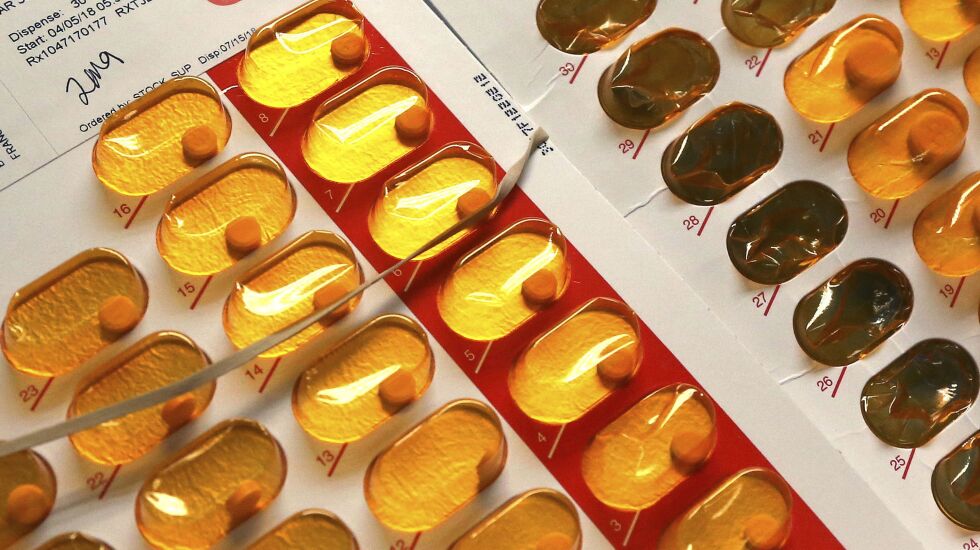
Doctors often use urine tests to make sure patients taking medication for opioid addiction are sticking with treatment, but a new study suggests they might be missing some cheaters.
Nearly 8% of these patients sometimes spike their urine by adding their treatment medicine, buprenorphine, to the samples. Such spiking can go unnoticed by doctors who use rapid tests instead of more sophisticated lab tests that can reveal who’s cheating.
“These patients are at particularly high risk for opioid overdose, as they are not receiving the protective effects of buprenorphine,” said Dr. Jarratt Pytell of the University of Colorado School of Medicine, who led the study, published by the journal JAMA Psychiatry.
About 2.4 million U.S. adults are prescribed this gold-standard medication for opioid addiction. It works by preventing craving and often is paired with counseling and other support.
With the number of overdose deaths rising, Congress recently made it easier for doctors to prescribe buprenorphine, which is sold under the brand name Suboxone.
In the study, researchers looked at more than 500,000 urine test results from Millennium Health, a large laboratory, that had been ordered by doctors from 2017 through April 2022.
Fewer than 2% of the samples — from 7.6% of patients — had evidence patients directly added buprenorphine to the urine specimen. Spiking was indicated by a low amount of a substance produced as buprenorphine breaks down in the liver.
Patients with evidence of spiked samples were more likely to test positive for heroin or fentanyl use.
Doctors shouldn’t cut off patients who cheat, Pytell said. That could lead to overdose. Instead, a suspicious result should prompt a discussion and possibly a higher level of care.
“When patients tamper with their urine specimen, it often indicates that they are unstable in their recovery and they could use more help,” said study co-author Brendan Saloner of Johns Hopkins Bloomberg School of Public Health. “Unfortunately, many patients are punished either by their program or by some legal authority, and they therefore have reasons why they may want to mask that they are not taking their buprenorphine as prescribed.”
Dr. Kim Dougan, a primary care doctor in the Seattle area, has treated hundreds of patients with buprenorphine.
“People not only get their life back, they get their jobs back, they get their families back,” said Dougan, whose new patients take a weekly urine test that‘s sent to a lab. Long-term, stable patients do an annual test.
If lab results look suspicious, she brings it up with the patient.
“My job is to say, ‘What’s going on here?’” Dougan said. “Being open and nonjudgmental is important.”







